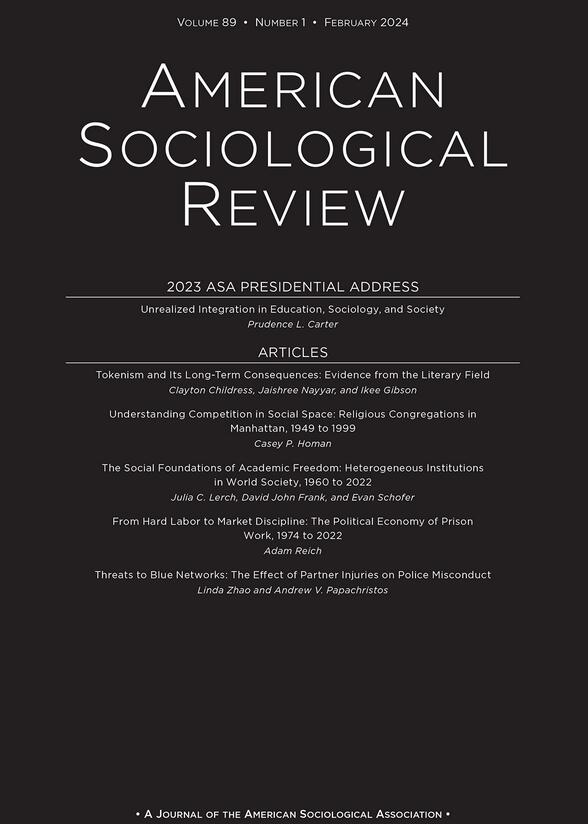跨工作环境翻译专业知识:美国木偶演员从舞台走向银幕
IF 7.1
1区 社会学
Q1 SOCIOLOGY
引用次数: 5
摘要
专业知识是当今知识经济的关键货币。然而,随着专家越来越多地在工作环境中流动,人们对专业知识如何在不同环境中转化的理解越来越少。在这里,我们研究了背景的转变——重新安排了专家对不同类型受众的相对关注——如何重新定义了成为专家的意义。我们研究的背景是创意产业中的一个既定专业知识:木偶操纵。通过对美国木偶师从舞台到银幕(即电影和电视)的转变进行研究,我们发现,尽管这两种场景要求的技术大多相似,但舞台上的木偶师在与观众的对话中坚持他们的专业知识,并将专业知识视为实现可信度;相比之下,在与制片人、导演和同事打交道时,屏幕上的木偶师会要求及时交付,并将专业知识视为完成任务。因此,在舞台和屏幕之间移动时,木偶师将某些观众的需求置于其他观众的需求之上,并逐渐重塑自己的专业观点。我们的研究结果将专业知识的性质嵌入了专家对受众类型的排序中,并为解释专业知识如何转变和被工作场所所接受提供了见解。本文章由计算机程序翻译,如有差异,请以英文原文为准。
Translating Expertise across Work Contexts: U.S. Puppeteers Move from Stage to Screen
Expertise is a key currency in today’s knowledge economy. Yet as experts increasingly move across work contexts, how expertise translates across contexts is less well understood. Here, we examine how a shift in context—which reorders the relative attention experts pay to distinct types of audiences—redefines what it means to be an expert. Our study’s setting is an established expertise in the creative industry: puppet manipulation. Through an examination of U.S. puppeteers’ move from stage to screen (i.e., film and television), we show that, although the two settings call on mostly similar techniques, puppeteers on stage ground their claims to expertise in a dialogue with spectators and view expertise as achieving believability; by contrast, puppeteers on screen invoke the need to deliver on cue when dealing with producers, directors, and co-workers and view expertise as achieving task mastery. When moving between stage and screen, puppeteers therefore prioritize the needs of certain audiences over others’ and gradually reshape their own views of expertise. Our findings embed the nature of expertise in experts’ ordering of types of audiences to attend to and provide insights for explaining how expertise can shift and become co-opted by workplaces.
求助全文
通过发布文献求助,成功后即可免费获取论文全文。
去求助
来源期刊

American Sociological Review
SOCIOLOGY-
CiteScore
13.30
自引率
3.30%
发文量
35
期刊介绍:
The American Sociological Association (ASA) is a non-profit membership association established in 1905. Its mission is to advance sociology as a scientific discipline and profession that serves the public good. ASA is comprised of approximately 12,000 members including faculty members, researchers, practitioners, and students in the field of sociology. Roughly 20% of the members work in government, business, or non-profit organizations.
One of ASA's primary endeavors is the publication and dissemination of important sociological research. To this end, they founded the American Sociological Review (ASR) in 1936. ASR is the flagship journal of the association and publishes original works that are of general interest and contribute to the advancement of sociology. The journal seeks to publish new theoretical developments, research results that enhance our understanding of fundamental social processes, and significant methodological innovations. ASR welcomes submissions from all areas of sociology, placing an emphasis on exceptional quality.
Aside from ASR, ASA also publishes 14 professional journals and magazines. Additionally, they organize an annual meeting that attracts over 6,000 participants. ASA's membership consists of scholars, professionals, and students dedicated to the study and application of sociology in various domains of society.
 求助内容:
求助内容: 应助结果提醒方式:
应助结果提醒方式:


